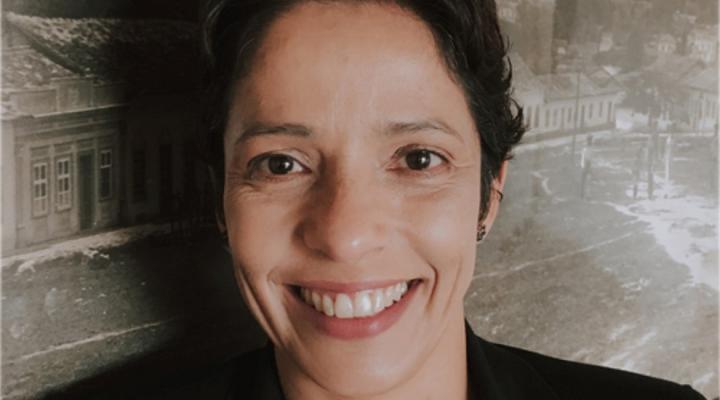
Translating innovative health technologies from concept to market.
Welcome new senior lecturer Suélia de Siqueira Rodrigues Fleury Rosa. Read more about Translating innovative health technologies from concept to market.

Hometown: Plano, Texas
BME research/concentration area: Tissue Engineering
Lab affiliation/Adviser: Prof. Nelly Andarawis-Puri
Awards/honors received at Cornell: National Science Foundation (NSF) Graduate Research Fellowship; Center for Teaching Innovation (CTI) Teaching Fellowship; West Campus Graduate Resident Fellow (GRF)
When I first arrived at Cornell, I came alone instead of on the main recruitment weekend due to a conflict with another graduate school visitation. Despite being the only prospective student visiting that weekend, the administrative staff, faculty, and current students pulled out all the stops to ensure that I felt at home—I could immediately feel the overwhelming support and strong sense of community within Cornell BME. I never felt at any point that people were putting on a superficial front or overselling the program. In fact, the students I met with openly discussed their challenges and areas for improvement, and all the faculty genuinely focused on helping me make an informed decision for the next step of my career. At some point during my visit weekend, I realized that the Cornell BME Ph.D. program and the institution as a whole offered me more than just exceptional preparation for a successful scientific career. Cornell actively fosters an environment that encourages its graduate students to extend their training beyond the research lab (e.g. outreach, teaching, mentoring, and science communication & policy opportunities) which I knew would allow me to grow tremendously as a scholar and future educator—and so I committed to the program before I even got on the plane back home! Also, it was surprisingly warm and sunny during my first visit, so everything aligned in favor of choosing Cornell BME!
When I applied to college, I knew that I was broadly interested in engineering but continually struggled all of senior year with deciding on a major. Funnily enough, I read a press release from Cornell BME featuring 3D-printed ears developed by biomedical engineers in Prof. Larry Bonassar’s group. The multidisciplinary nature of biomedical engineering appealed to my indecisiveness and drew me in. Luckily, this decision has worked out well for me thus far in my academic journey!

Tendon injuries are debilitating conditions which account for nearly a third of all musculoskeletal consultations. Current clinical treatments for tendon injuries (e.g. surgical reconstruction, corticosteroids) result in scar formation, fail to restore pre-injury function, and consequently lead to high post-operative re-injury rates. Accordingly, my research under the mentorship of Prof. Nelly Andarawis-Puri utilizes an adult mammalian model of tendon regeneration to investigate biological mechanisms through which we can promote scarless tendon healing instead of scar-mediated tendon healing. Ultimately, this research provides a key step towards developing more effective therapeutics and tendon tissue engineering solutions for humans.
My Cornell BME experience has been significantly shaped by Nelly, my phenomenal and supportive advisor, as well as my fantastic colleagues in the Andarawis-Puri lab and in the Ph.D. program. The people have truly defined my Ph.D. experience. I cannot imagine having done my Ph.D. anywhere else, and it’s honestly been one of the most exciting and fulfilling phases of my life without a doubt. A more recent defining moment has been watching both my undergraduate mentees develop as independent researchers and get accepted into prestigious Ph.D. programs—I’m so proud of them and it’s been by far one of the most rewarding moments of my Cornell BME experience.
I’m actively involved with a variety of K-12 STEM outreach, teaching, and mentorship programs through Cornell and the local Tompkins County area. I’m also a Graduate Resident Fellow (GRF) in William T. Keeton House, one of the dorms on West Campus, and put on a variety of programming for my undergraduate residents, including a “Dessert and Discussion Series” (I pair homemade desserts with discussion of current events in science, healthcare, and higher education) and our semesterly “Midnight/Late-Night Breakfast” (making over 80 portions of food in one day; previously have made Chinese congee, Chinese donuts, chive pockets and dumplings, and many more)!
Outside of Cornell, I’m an organizer for ComSciCon (ComSciCon-Cornell 2018, ComSciCon-NY 2019, ComSciCon-SciWri 2019 and 2020), which is a series of science communication workshops that provides STEM graduate students and postdocs with hands-on training to improve the accessibility of science for the general public. In my free time outside of academics, I enjoy cooking, trying new coffee varieties, and indoor rock climbing at Lindseth.
Don't be afraid to ask for help. I’ve noticed that many students, myself included, are often hesitant to admit when they’re struggling. It’s so, so important to surround yourself with people who actively uplift others rather than tearing them down. For Ph.D. students, prioritize finding an advisor, colleagues, and mentors who look out for your personal wellbeing—always put your mental health first.
After I complete my Ph.D., I plan to pursue a postdoc and hope to become a tenure-track professor at a research-intensive institution. As an LGBTQ+ scientist, I’m also committed to improving the visibility, retention, and success of marginalized groups in STEM and empowering others to embrace their authentic selves, both in and out of the lab. My advisor and mentors have been attentively involved in my professional development and unconditionally support my career interests!
“If you don't love yourself, how in the hell you gonna love somebody else” – RuPaul